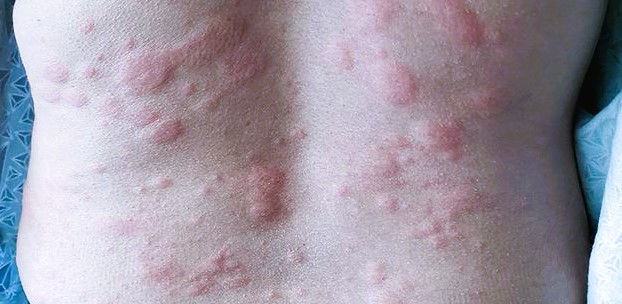Hives: Causes, Symptoms, Treatment, and Precautions
Understand hives: their causes, symptoms, treatments, and precautions. Get the information you need to identify, manage, and prevent this common skin condition effectively.


Hives, also known as urticaria, is a common skin condition characterized by itchy, raised welts on the skin. These welts can vary in size and shape and may appear anywhere on the body. Hives can be acute or chronic, with acute hives lasting for less than six weeks and chronic hives lasting for longer periods.
Causes of Hives
The exact cause of hives is often difficult to determine. However, hives are commonly triggered by an allergic reaction to certain substances, such as:
Food allergens, like nuts, shellfish, eggs, or dairy products
Medications, including antibiotics, nonsteroidal anti-inflammatory drugs (NSAIDs), or aspirin
Insect bites or stings
Pollen or pet dander
Exposure to extreme temperatures
Stress or emotional factors
Symptoms of Hives
The main symptom of hives is the appearance of raised, itchy welts on the skin. These welts may be red or pink in color and can vary in size from small dots to large patches. In some cases, hives may also cause swelling of the lips, tongue, or face. The itching sensation can be quite intense and may lead to discomfort and sleep disturbances.
Treatment for Hives
When it comes to treating hives, the primary goal is to relieve symptoms and prevent their recurrence. Depending on the severity of the condition, treatment options may include:
Antihistamines: These medications help reduce itching and relieve symptoms. They are available over-the-counter or by prescription.
Corticosteroids: In severe cases, oral or injectable corticosteroids may be prescribed to reduce inflammation and itching.
Epinephrine: In rare instances of severe allergic reactions, epinephrine may be necessary to treat hives and prevent anaphylaxis.
Avoiding triggers: Identifying and avoiding triggers that cause hives can help prevent their recurrence. This may involve dietary changes, medication adjustments, or lifestyle modifications.
Precautions for Hives
If you are prone to hives or have experienced them before, it is important to take certain precautions to minimize the risk of developing an outbreak:
Avoid known triggers: If you are aware of specific substances or situations that trigger your hives, avoid them as much as possible.
Wear loose-fitting clothing: Tight clothing can irritate the skin and worsen hives. Opt for loose-fitting, breathable fabrics.
Maintain a healthy lifestyle: Stress, fatigue, and certain lifestyle factors can contribute to hives. Prioritize self-care, get enough sleep, and manage stress effectively.
Keep a diary: Keeping a record of your hives outbreaks, along with any potential triggers, can help you identify patterns and avoid future episodes.
Consult a healthcare professional: If your hives are persistent, severe, or interfering with your daily life, seek medical advice for proper diagnosis and treatment.
Remember, hives can vary in their presentation and triggers from person to person. It is essential to work with a healthcare professional to develop an individualized treatment plan that addresses your specific needs.
